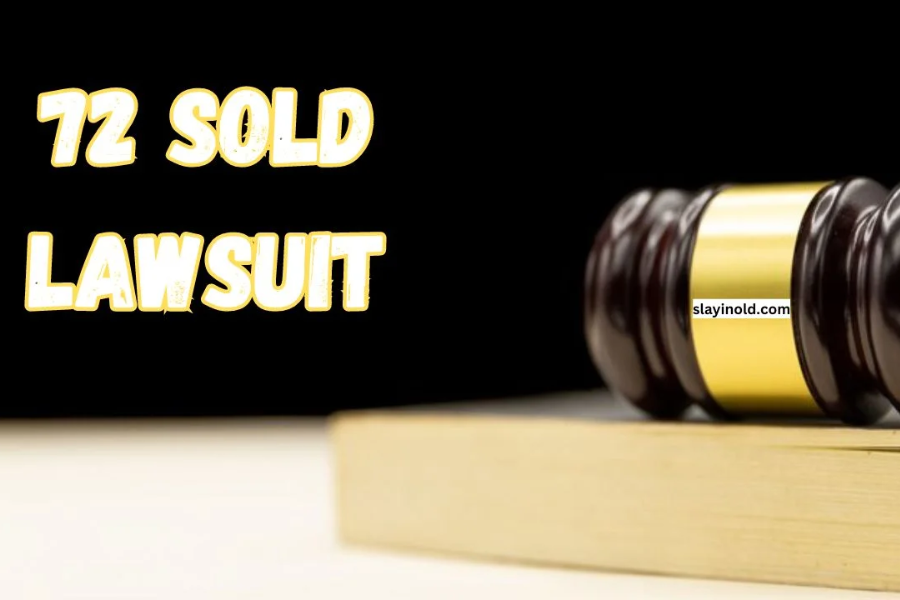Understanding the 72 Sold Lawsuit: Key Issues and Implications Explained
Introduction
The real estate industry has always been dynamic, with various companies offering innovative solutions to make buying and selling homes more efficient. Among these, the 72 Sold program has stood out by promising homeowners a swift sale of their property, typically within 72 hours. This ambitious promise, however, has come under scrutiny through a significant lawsuit that raises crucial questions about the program’s business practices. This article delves into the 72 Sold lawsuit, examining its background, key allegations, legal proceedings, and the broader implications for homeowners and the real estate industry.
Overview of the 72 Sold Program
The Concept and Business Model
The 72 Sold program, founded by real estate expert Greg Hague, offers a novel approach to selling homes. The service is designed to expedite the selling process by leveraging an auction-like strategy. By creating urgency and competition among potential buyers, 72 Sold aims to secure quick offers and close sales rapidly. Partnering with Keller Williams brokerage, the program markets itself as a convenient alternative to traditional real estate methods, which can often involve lengthy waiting periods and complex procedures.
The program’s primary appeal lies in its promise to sell homes within a short timeframe, making it an attractive option for homeowners eager to finalize their sale quickly. However, this rapid approach has brought with it some serious allegations, leading to the current lawsuit.
Importance and Impact of the Lawsuit
Significance of the Legal Case
The lawsuit against 72 Sold is significant for several reasons. It not only challenges the company’s business practices but also raises broader concerns about transparency and fairness in the real estate industry. Homeowners involved in the lawsuit have alleged misleading advertising, hidden fees, and coercive tactics, all of which have serious implications for how real estate services are marketed and conducted.
The outcome of this legal case could lead to stricter regulations and increased scrutiny of real estate programs that promise quick sales. It underscores the need for homeowners to conduct thorough research and understand the terms and conditions of any real estate service before committing.
Implications for Real Estate Practices
As the lawsuit unfolds, it serves as a critical reminder of the importance of ethical practices in real estate transactions. If the court finds 72 Sold liable, it could prompt changes in how real estate companies operate, particularly those offering expedited sale programs. This case highlights the need for greater transparency, consumer protection, and ethical standards in the industry.
Background of 72 Sold
Description of the Company and Its Business Model
72 Sold’s business model is built around the promise of selling homes within 72 hours. This strategy involves an auction-like process designed to generate competitive offers from potential buyers, thus facilitating a quick sale. The company presents itself as a faster, more efficient alternative to traditional real estate methods, which often involve longer timeframes and more complex procedures.
The program’s marketing focuses on the speed and convenience of its services, aiming to attract homeowners who need to sell their properties quickly. This approach, while appealing, has become a focal point of controversy in the ongoing lawsuit.
Key Figures Involved in 72 Sold
Greg Hague, the founder of 72 Sold, is a prominent figure in the real estate industry with decades of experience. His expertise and innovative approach to selling homes have been central to the development of the 72 Sold program. Hague’s leadership and vision have driven the company’s expansion and its partnership with Keller Williams brokerage.
Despite the program’s initial success, the lawsuit has raised questions about its business practices. The allegations against 72 Sold challenge the integrity of the company’s promises and highlight potential issues with its operational approach.
Allegations Against 72 Sold
Misleading Advertising Practices
One of the central allegations in the lawsuit is that 72 Sold engaged in misleading advertising. Homeowners claim that the company’s promise to sell homes within 72 hours was not always fulfilled. The lawsuit argues that this marketing message created a false impression of guaranteed quick sales, leading homeowners to believe that their properties would be sold within the promised timeframe without exceptions.
This discrepancy between the advertised promises and the actual outcomes has been a major point of contention in the lawsuit. The plaintiffs argue that the misleading advertising constituted deceptive business practices, causing financial and emotional distress.
Hidden Fees and Undisclosed Costs
Another significant allegation is the presence of hidden fees and undisclosed costs associated with using the 72 Sold service. Homeowners have asserted that the company did not provide clear information about all the fees involved in the selling process upfront. As a result, many clients faced unexpected financial burdens, feeling misled about the true cost of the service.
The lawsuit highlights the importance of transparency in disclosing all associated costs to clients. Homeowners argue that the lack of upfront clarity about fees and costs undermines the trust and reliability of the service.
Pressure Tactics on Homeowners
The lawsuit also accuses 72 Sold of employing pressure tactics to push homeowners into accepting offers quickly. Allegations include claims that homeowners were coerced into making rapid decisions without adequate time to consider their options or seek independent advice. This high-pressure environment is said to have led to rushed and potentially regrettable decisions about selling their properties.
These pressure tactics are a critical concern, as they challenge the fairness and ethical standards of the company’s business practices. The lawsuit argues that such tactics undermine the ability of homeowners to make informed and deliberate choices.
Legal Proceedings and Current Status
Overview of the Legal Actions Taken
The legal proceedings against 72 Sold involve multiple complaints from homeowners who feel misled by the company’s practices. The primary allegations include misleading advertising, hidden fees, and pressure tactics. These complaints have led to a series of court hearings where evidence and testimonies from both sides are being examined.
The court has reviewed various documents, including advertising materials and client contracts, to assess the validity of the claims. Both the plaintiffs and the defendants have presented their arguments, and the case continues to unfold as the court evaluates the evidence.
Current Status of the Lawsuit
The 72 Sold case is still pending as of right moment. The court is in the process of reviewing the evidence and testimonies presented by both sides. No settlements or verdicts have been reached yet, and the legal proceedings are expected to continue as the case progresses.
The outcome of the lawsuit could have significant implications for the real estate industry, particularly for companies offering quick-sale programs. Homeowners and industry professionals are closely watching the case to understand its impact on future regulations and business practices.
Implications for Homeowners
Potential Outcomes for Affected Homeowners
The 72 Sold lawsuit could result in several potential outcomes for affected homeowners:
- Financial Compensation: Homeowners who experienced misleading advertising, hidden fees, or pressure tactics may receive monetary compensation to cover their financial losses.
- Policy Changes: If 72 Sold is found liable, the company may be required to alter its business practices to ensure greater transparency and fairness in future transactions.
- Legal Precedents: The lawsuit could establish legal precedents that protect other homeowners from similar issues, potentially leading to stricter regulations for real estate programs that promise quick sales.
Recommendations for Homeowners Considering Similar Programs
For homeowners considering programs like 72 Sold, it is crucial to take several precautions:
- Read the Fine Print: Thoroughly review all terms and conditions before committing to any real estate program. Pay close attention to any hidden fees or conditions that might affect the sale.
- Compare Options: Evaluate different programs and traditional real estate agents to find the best fit for your needs. It’s not necessary to accept the first offer that is made to you.
- Seek Legal Advice: Consult with a real estate attorney if you have any doubts or concerns. Legal guidance can help protect your interests and ensure fair dealings.
- Ask Questions: Request detailed information about the program’s processes, fees, and timelines. Make sure you fully understand what you are signing up for.
- Check Reviews and References: Look for reviews and ask for references from past clients to assess the reliability and reputation of the program.
The 72 Sold lawsuit highlights the importance of conducting thorough research and seeking independent advice when engaging with real estate programs that promise quick sales. These steps can help ensure a smooth and fair transaction, protecting homeowners from potential pitfalls.
Impact on the Real Estate Industry
Potential Regulatory Changes
The 72 Sold lawsuit could lead to significant regulatory changes within the real estate industry. If the court determines that 72 Sold engaged in misleading practices, it may prompt new rules to ensure transparency and protect consumers. Potential regulatory changes could include:
- Stricter Disclosure Requirements: Real estate companies may be mandated to provide clear, upfront information about fees, terms, and conditions to prevent hidden costs.
- Enhanced Advertising Standards: Companies might be required to substantiate their marketing claims to avoid misleading consumers about the speed and guarantees of their services.
- Consumer Protection Measures: New laws could be enacted to protect homeowners from pressure tactics and ensure they have sufficient time to make informed decisions.
Increased Scrutiny of Real Estate Technology Platforms
The 72 Sold lawsuit has also brought increased scrutiny to real estate technology platforms that promise fast sales. Key points include:
- Regulatory Oversight: There could be more regulatory oversight to ensure these platforms operate fairly and transparently. Authorities may implement regular audits and compliance checks.
- Consumer Awareness: The lawsuit has raised awareness among consumers about the potential risks of fast-sale programs. Homeowners are likely to approach these options with greater caution and diligence.
- Industry Standards: The real estate industry may establish higher standards for technology platforms, ensuring their practices align with ethical guidelines and legal requirements.
The 72 Sold lawsuit represents a pivotal case that could shape future practices in the real estate sector. The outcomes will be closely observed by both homeowners and industry professionals, as they will influence future regulations and business practices.
Conclusion
The 72 Sold lawsuit has brought significant attention to the promises and practices of expedited home-selling programs. By addressing issues such as misleading advertising, hidden fees, and pressure tactics, the lawsuit highlights the need for greater transparency and ethical standards in the real estate industry.
As the legal proceedings continue, the case serves as a crucial reminder for homeowners to thoroughly research and understand any real estate service they consider. The potential outcomes of the lawsuit could lead to meaningful changes in industry regulations and practices, ultimately benefiting consumers and promoting fairer business practices.
By staying informed and exercising due diligence, homeowners can better navigate the complexities of real estate transactions and protect their interests in a rapidly evolving market.






